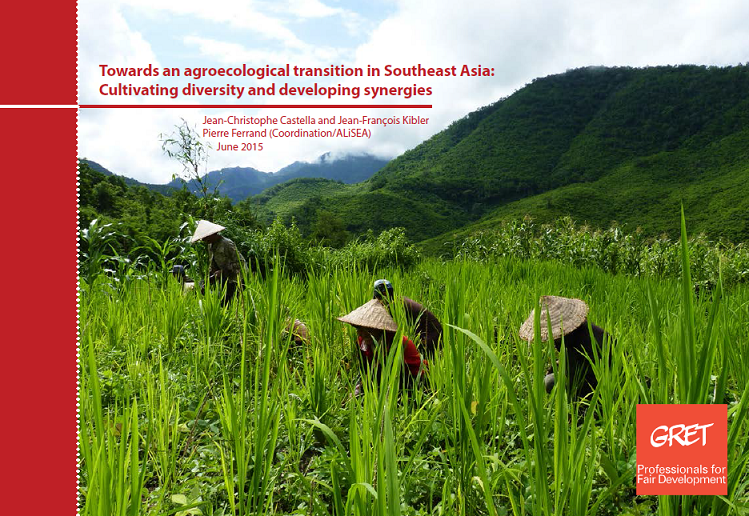
Starting from the early 1990s, a multitude of national and regional initiatives have emerged in the Great Mekong Sub-Region for supporting ecological intensification of agriculture or agroecology. The French Agency for Development (AFD) has been a very active supporter of these initiatives, especially in relation to the promotion of Conservation Agriculture and the establishment of the Conservation Agriculture Network for South East Asia (CANSEA).
In addition to its initial focus on Conservation Agriculture and with the objective of widening the scope of agroecology, the AFD commissioned a study to better understand regional and national agroecology dynamics and initiatives, as well as the main issues at stake for their large scale dissemination.
This publication, produced with the support of the Agroecology Learning alliance in South East Asia (ALiSEA) aims at sharing some of the study’s key findings, and at providing a broad, yet non-exhaustive, overview of the current situation of agroecology in the Great Mekong Region.
The document is organized in 2 main parts: